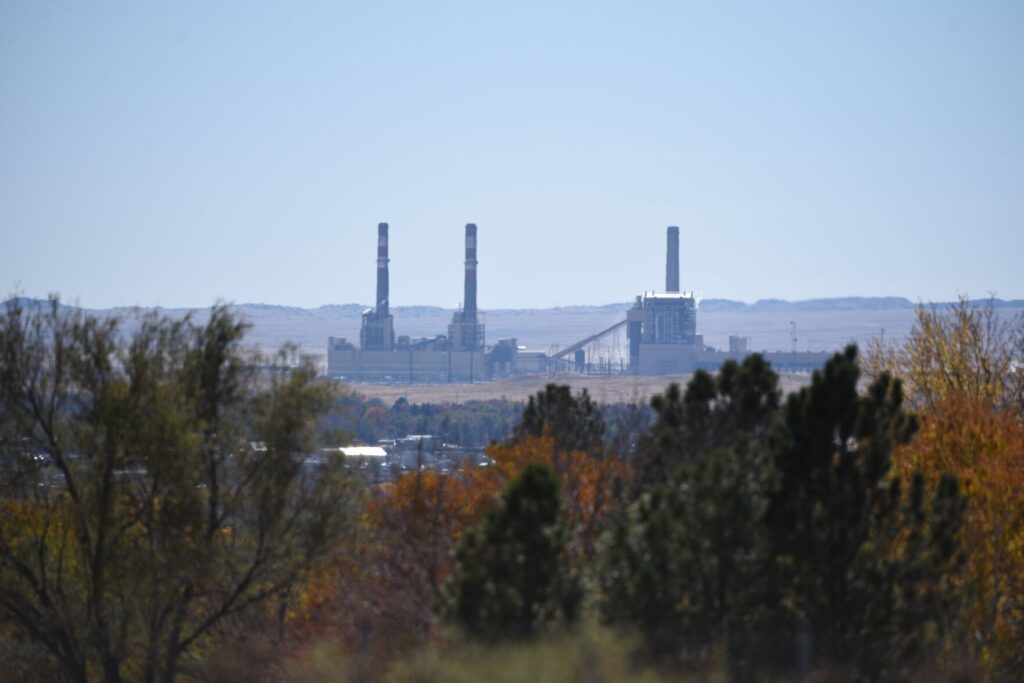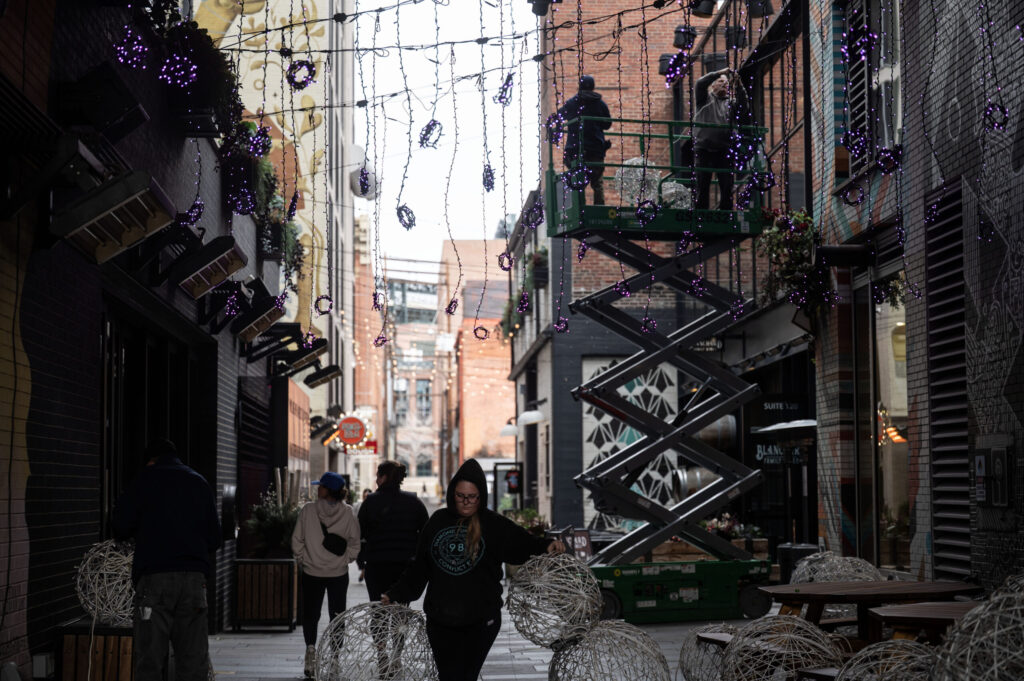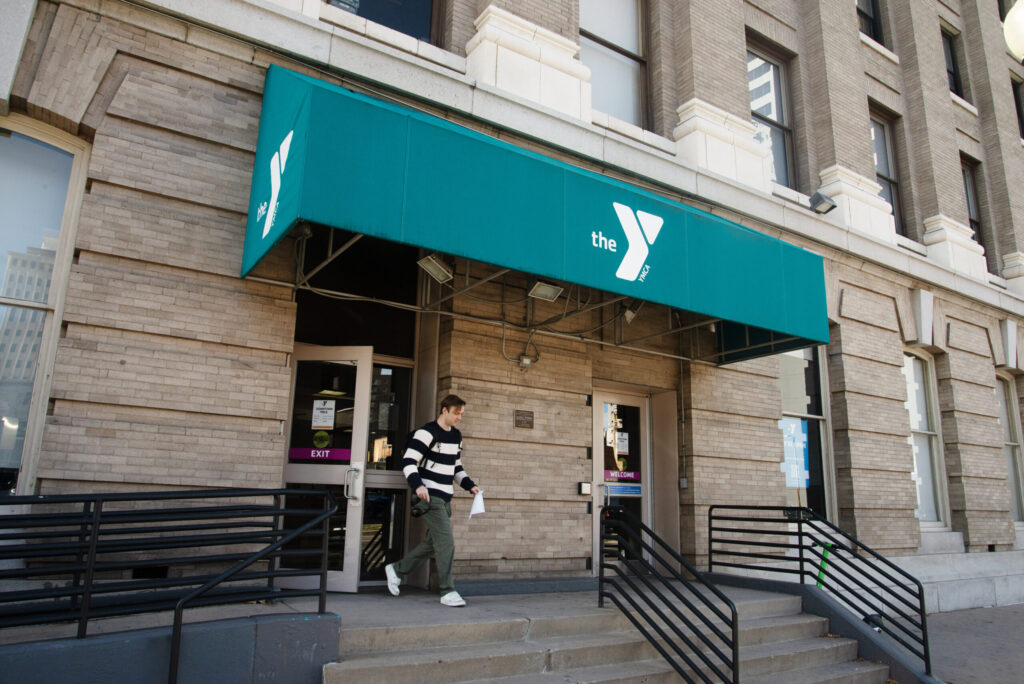As bike deaths spike, shop owners opposed to infrastructure changes decry bullying
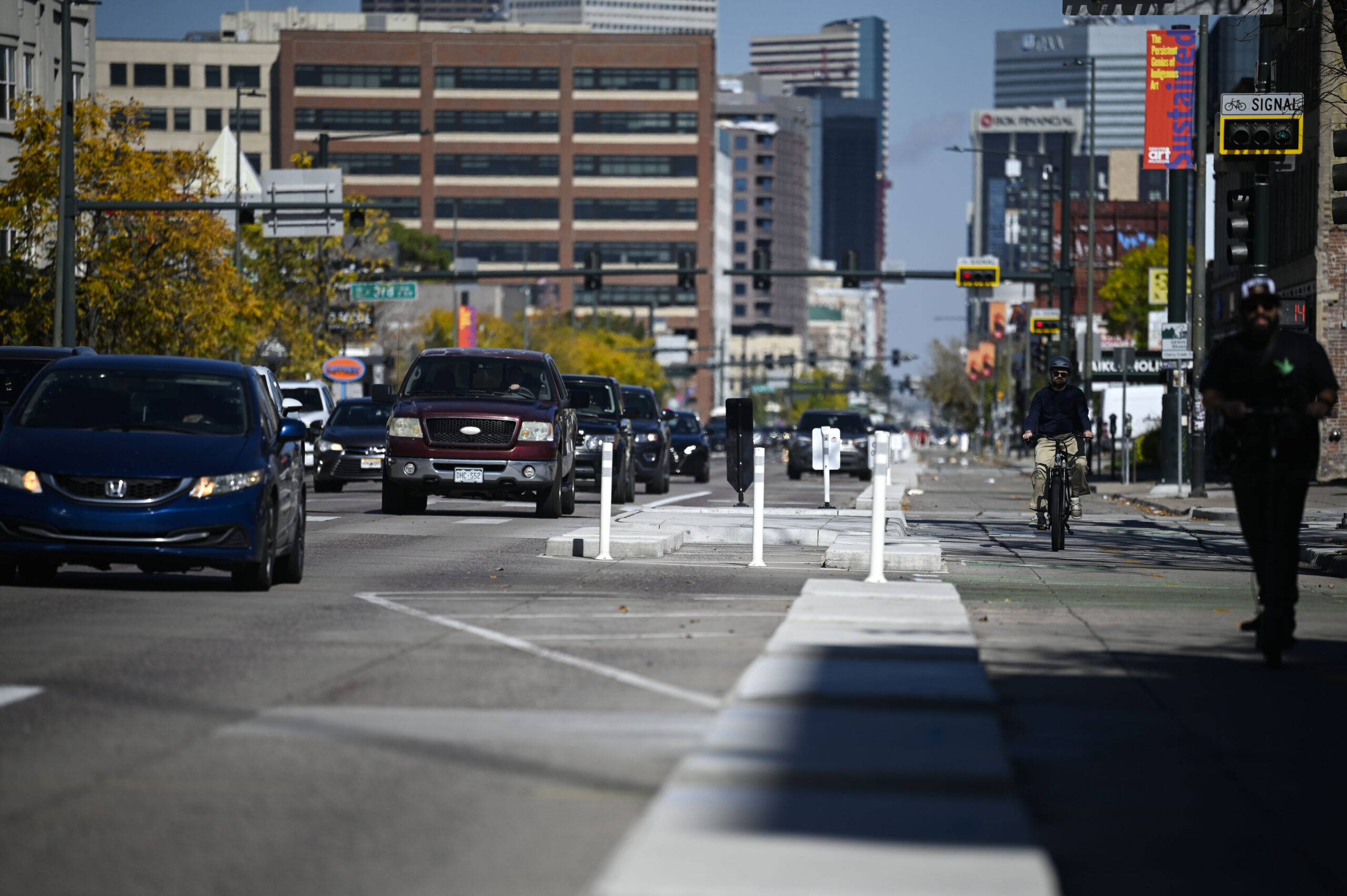
Increasing numbers of fatal accidents involving pedestrians and cyclists in Colorado — up 78% over the past decade according to the State Patrol — are raising the temperature on a public debate over how bike riders can be better protected on roads around Denver.
One party to the debate is crying foul, describing intimidation against business owners who are located in the path of the city’s bike safety infrastructure and who have voiced opposition to the installations.
Representatives of cycling groups and supporters of the road infrastructure changes said they have not heard of bike advocates intimidating businesses, with some blaming the current climate of public discourse.
The Denver Gazette has interviewed a number of business owners and officers that have come forward to report intimidating encounters with activists after they expressed objections to some road projects carried out by the Denver Department of Transportation and Infrastructure.
All of those parties requested that neither their names, business identities nor locations be used, fearing a repeat of the tactics they said they experienced.
Some of those tactics reported by owners are web related, including waves of negative reviews that appear on Yelp-type sites, either as low customer ratings or as on-line comments to the effect that a shop disregards cyclists and human life.
But others are more personal in nature — including vandalism of shop property, in-person disruptions during customer hours, and even personal phone hazing, several entities said.
‘Why would you ever wish that on someone?‘
“It really, really affects our business, big time,” one store owner told The Gazette, following a mix of intimidation, including a rash of 1-star reviews and personal calls.
Among the phone messages, the party said, were those blaming the owner for personal responsibility for cyclists’ lives lost.
“On a human level, to assume without knowing that one wants another’s life to be taken, that is really traumatic,” the owner said, asking not to be identified. “Why would you ever wish that on someone?”
Reports on similar attacks persisted through this past week.
Owners noted that their own experiences are in addition to similar encounters reported by neighborhood residents who said they, too, endured intimidation after speaking out against DOTI projects.
Those tactics, one party said, include “doxing” — exposing personal information or addresses of a party, with malicious intent.
While plenty of discussion abounds over how best to improve bike safety, there is no debate about the seriousness of bike accidents and deaths.
Denver’s Vision Zero dashboard, a city program that mirrors a Swedish movement to reduce traffic deaths to zero, cited 40 cyclist fatalities in the city of Denver since 2013, when Vision Zero was first adopted here. Those included a death this past July of a 21-year-old cyclist at W. 38th Avenue and Tejon Street, struck by a hit-and-run driver.
Although 2024 was the second deadliest year for combined pedestrians and cyclist fatalities — 134 on record — specific deaths of cyclists dropped statewide over the past two years, following 2023, when 20 were killed across Colorado.
Those included the prominent death of 19-year-old cyclist Magnus White on a rural Boulder County road. That sparked a rally of thousands in support of greater safety, spearheaded by cyclist lobbying groups, including the White Line Foundation.
No parties who reported intimidating practices against their businesses suggested they had any personal opposition to cyclists or to measures to improve safety. Several noted that they are cyclists themselves and that opposition they voiced against infrastructure projects is based, in part, on their own experiences with newer bike lane designs.
Advocate: Cyclists don’t threaten business owners
While owners reported efforts to discuss the issue and the tactics with the city and with advocates, organized proponents of DOTI projects said they are unaware of any efforts at intimidation.
Nicole McSpirit, a former Bike Mayor on behalf of the Denver Bicycle Lobby, told The Denver Gazette that she was surprised to hear of the tactics being alleged.
“I have never heard of any bike advocates threatening business owners,” she said in a written reply.
“Those of us involved in safe streets advocacy are very passionate about giving people safe and convenient transportation options,” she added. “Many of us have lost people we love in traffic crashes, been hit ourselves, and frequently experience close calls with drivers from reckless or intentional actions.
“It’s a constant reminder of how quickly a life can be ended or forever changed by even the most well-intentioned motorists,” McSpirit continued.
Jill Locantore, executive director of the Denver Streets Partnership, told The Denver Gazette she, too, is not aware of specific instances of abusive tactics used by cycle advocates and noted that the issue reflected the general state of affairs regarding public debate now.
“We’re not very good at civil discourse; we demonize people who disagree with us and it’s not a surprise it would show up in this instance,” Locantore added.
“It’s an American tradition that we use our spending power to share our values,” she said. “We withhold money from those who don’t express our values. You can argue about when it crosses the line, but it’s not unique to people on bicycles.”
Nancy Kuhn, spokesperson for the Denver Department of Transportation and Infrastructure that designs and manages bike safety projects, told The Denver Gazette that the department is sorry if anyone is being harassed.
“We value all the input we’ve received about the project on all sides,” she said, referencing the upcoming lane repurposing project on East Alameda.
The Streets Partnership’s Locantore said some business owners may not understand how many of their customers are riders of bikes and other alternative forms of transportation. She added that studies suggest better access for bikes and pedestrians tends to improve business performance.
At least one owner said the measures implemented have served to cut down the amount of car traffic, and that the business is being negatively affected as a result.
“The bike lobby said it would bring more business,” the party added.
That owner was among others who said that, in addition to reducing customer access to their business, the infrastructure improvements have functioned to reduce safety, rather than improve it.
“I drive every day and see maybe three people using (the bike lane),” the party said, adding that in approaching winter months the lane could become unusable.
“The city doesn’t have the ability to plow it, it ices over, and even in the heat of summer it’s rarely used. It feels more dangerous than it ever was previously.”
Among the opponents to the new infrastructure, there is a general complaint that the bollard-lined paths are too enclosed and restrictive for casual use and that they risk collisions that would prove harmless to a car passenger but dangerous to a bike rider.
Some also questioned the basic utility of the bike improvements, which they see as lightly used, particularly in the colder months. They questioned the metrics that city planners use in apportioning the installations, as to whether they actually address areas that have contributed to bike accidents in the past.
Business, residents object to DOTI projects
Meanwhile, the specific safety measures that DOTI applies in its bike-related projects have encountered pushback, no just from businesses along their routes, but also from residential neighbors and drivers.
Those projects included speed bumps and humps; roundabouts installed in older intersections with minimal clearances; and vertically improved bike lanes set off by zippers, speed cushions, pinch-points and waist-high bollards.
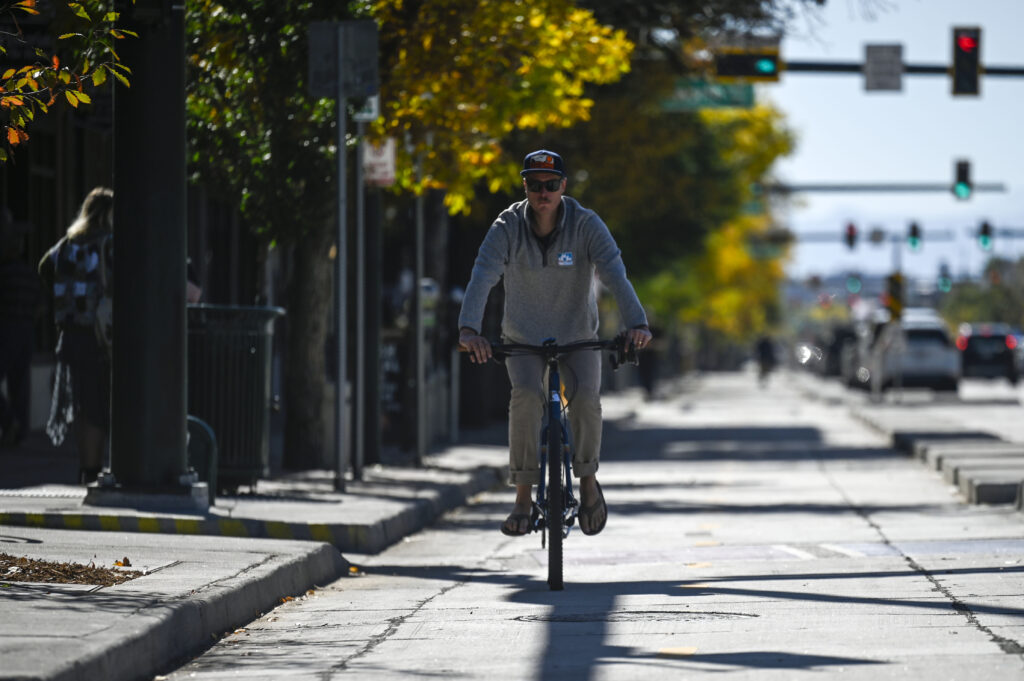
In repeated coverage, The Denver Gazette has reported on protests in neighborhoods targeted for the improvements, some of which resulted in design changes by DOTI.
Along E. Seventh Avenue in Denver, DOTI removed a small number of bollards at one intersection, where eighty of the devices were installed, after complaints by neighbors. The bollards were paired with numerous signposts and extensive street paint marking a curving bike path through a crosswalk.
Some neighbors who had publicly complained about the installations later reported about becoming targets of various intimidation tactics.
In Denver’s Crestmoor Park neighborhood, the city drastically reduced the scale of a pending bike infrastructure, following neighbors’ protests. Similar installations have been made in University Park, Capitol Hill, Congress Park, Uptown, Whittier and other areas, where they have also drawn opposition.
Currently, DOTI is planning an extensive “lane repurposing” project on East Alameda Avenue east of South Logan Street that would convert four lanes of traffic to two along a 12-block stretch.
The “road diet” plan has already drawn hundreds of petitioners, who complained to the mayor’s office, while a list of neighborhood supporters also reached out to The Denver Gazette.
All of the parties to these debates — the city, the bike advocates, neighborhood proponents and opponents — all cited safety worries among their primary motivations for speaking out.
Opponents’ objections cover a broad range: That the installations cause accidents for drivers and bikers who fail to navigate them; that they force traffic onto side streets, where they endanger pedestrians; that they block off curb areas, where street sweepers can’t probe; and that they are doubly hazardous for bikes and cars when roads are icy.
Afraid to speak
Despite the range of criticism raised by opponents, one group that doesn’t feel free to join the debate is people who own or manage businesses nearby, and whose customers and services have been affected.
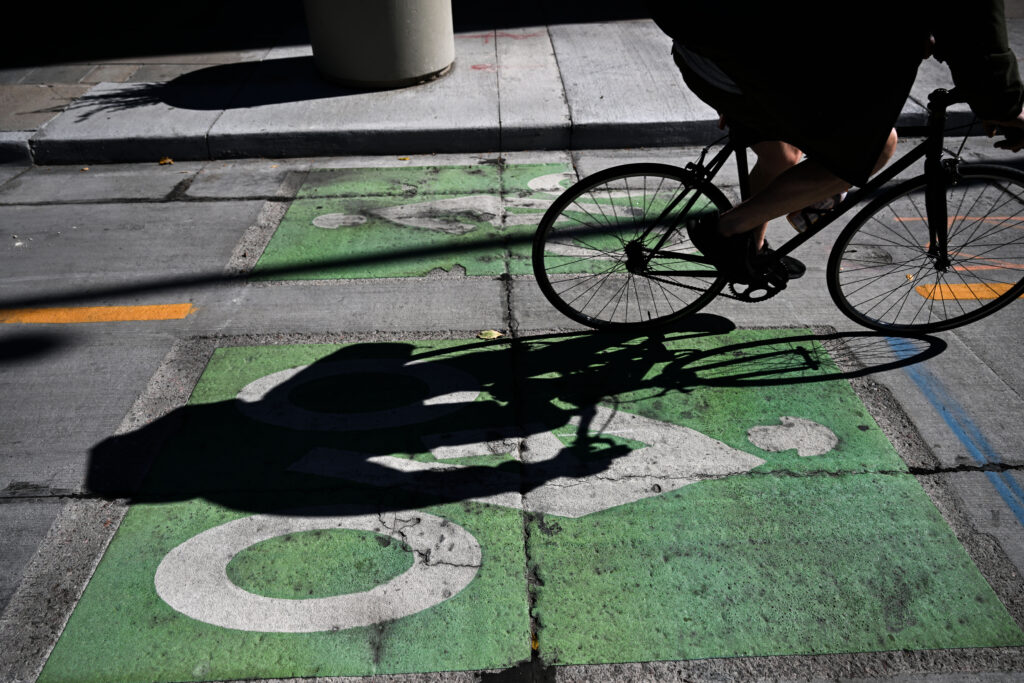
(Stephen Swofford, Denver Gazette)
“We’re still facing so much backlash,” one owner reported. “We’ve found people lobbying for bike lanes have been so harmful to business that were unwilling (to speak publicly).”
“When business owners of any kind speak up not 100% in support of what bike advocates see as their cause, we have a nice wave of 1-star on-line reviews that have nothing to do with the business,” another operator told The Denver Gazette.
As in the case of other complainants, the owner said that the objections they voiced and reported by the news media have largely been about how the measures would function for traffic, street deliveries and customer parking. They are not directed at the idea of bike safety, the owner said.
Owners said the anonymous web reviews hurt businesses, and that it has been difficult to get bogus reviews removed once they are up. One noted that Google has become more understanding of the situation and responds quicker to requests to have reviews removed.
But on-line reviews are just the start of the disruptive tactics that owners experience, they said.
“We’ve had flower planters knocked over,” one owner reported to The Gazette. “We frequently have had people come in and yell during the height of our business traffic. I personally filed a police report after I received personal phone calls.”
The owner reiterated that the objections that drew the intimidation had nothing to do with general opposition to bike safety measures.
“I am certainly not averse to all projects; I’m an avid biker,” the owner said.
Meanwhile, the life-and-death atmosphere surrounding the issue has turned up the heat against those who speak out against projects, the owners said, adding the pushback becomes personal, including allegations of moral responsibility for accidents and deaths.
‘An illusion of safety’
A business owner along South Broadway, who has expressed ongoing concern about a new bike lane that makes parking difficult at his rental store, said he has been a target of antics when driving in or out of his lot.
That happens when he gets stuck across the lane while attempting to drive out to enter traffic, the owner said.
“I get fists waved at me,” he told The Denver Gazette. “I’m holding up traffic, I’m getting honked at or yelled at.”
“Bike lanes create an illusion of safety,” he said. “(Cyclists) become more emboldened, they are quicker to get angry. They harass agencies and businesses alike and are constantly demanding more.”
The new lanes are sometimes criticized by cyclists themselves, including some of the business owners interviewed.
In addition to objecting about lost parking spaces for store customers and deliveries, those owners complained about how the lanes function safety-wise when they have cycled along them.
“I am a cyclist. I appreciate their passion,” one owner said while reporting a round of web harassment, some of it personal and expletive ridden, that had followed after the owner complained about bike lane plans near the store.
Owners noted that, after experiencing intimidation, businesses have reached out to several cycling advocacy groups to voice specific objections about bike lanes but felt they weren’t given a full hearing. One owner recalled inviting advocacy groups to join a meeting on the issue but received no reply.
Although bike deaths have fallen statewide over the past two years, The Denver Gazette reported earlier this month that pedestrian deaths in Denver climbed sharply this year, up 50% over 2024, according to DOTI. Those include a rash of motorists who had exited their cars after stopping on the freeway and been struck by traffic.
The Denver Gazette reached out to the Denver Metro Chamber of Commerce for a statement on the intimidation reported by businesses, but the organization declined to comment.
One party close to the restaurant association who declined to use a name told The Denver Gazette that the group itself had been the target of harassment after it came out in opposition to bike improvements being applied close to its headquarters office south of downtown.
Editor’s note: Though the Colorado Restaurant Association did not respond before this story was originally published, as requested by The Denver Gazette, it sent a statement Wednesday.
“The Colorado Restaurant Association consistently hears complaints from restaurant operators in Denver that the city has limited parking availability for their customers, to the detriment of their businesses. How are they to operate, accept daily deliveries, and welcome consumers when parking is eliminated? It would be extremely helpful if the city would do a more thorough outreach process to local businesses before changing traffic patterns,” said Nick Hoover, director of Government Affairs.



